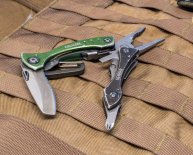
Colt Firearms stock symbol
Firearms enthusiasts have been investing in new guns at record rates this year. These ace shots should also consider investing in the stocks of the companies that make firearms, providing a different type of bang for their buck. Read on for more about the firearms industry and some publicly traded firearms stocks available to investors.
The firearms industry has some interesting investing dynamics you don't find anywhere else:
- Many so-called socially responsible investors outright avoid owning, which can make these stocks persistently undervalued.
- The firearms industry faces a perennial threat from gun control legislation, but this just leads to spikes in gun and ammo sales whenever there are talks or fear of gun control. The most recent talks have set off a surge of interest in buying guns. During the first quarter of this year, the FBI's National Instant Criminal Background Check System (NICS) saw a 46% increase in background checks for firearms purchases.
- Gun manufacturers face an existential threat in the future if 3-D printing of guns ever takes off.
Olin is a chemical company that also owns Winchester Ammunition. The company distributes its ammunition under the Super X, Supreme, Supreme Elite, AA, and Winlite brand names, among others. While the company trades at a P/E ratio of 13, Winchester only makes up 20% to 25% of the business, so you are mainly investing in a chemical company. If you are looking for a pure play on firearms, you are better off looking elsewhere.
Smith & Wesson has been making firearms in Springfield, Mass., since 1856. After getting exclusive rights to the patent for bored-through revolver cylinders from Rollin White, an ex-employee of Colt firearms, for 10 years Smith & Wesson was the only legal manufacturer of revolvers with the new technology, which allows for rear-loading revolvers. Smith & Wesson now enjoys one of the strongest brand names in the business, its name is nearly synonymous with revolvers, and the company boasts a 92% brand awareness according to a recent survey. The company is the maker of firearms under its own name as well as the M&P, Thompson/Center, and Walther brands. It also manufactures black powder weapons and handcuffs, and operates an academy for law enforcement and other security professionals.
Currently, Smith & Wesson trades at a P/E ratio of 9.4; however, investors should note that this measure is backward-looking as opposed to forward-looking. With fear of gun control very high in the past year, earnings are likely closer to a cyclical high than anything close to normal. If you disagree, though, and believe demand for guns will continue to rise, Smith & Wesson looks cheap.
Sturm, Ruger manufacturers firearms under the Ruger name from its facilities in Prescott, Ariz., and Newport, N.H. The company is hitting record sales as demand for guns surges over fear of gun control legislation. Shareholders benefit from a variable dividend that fluctuates based on a percentage of the company's earnings. For the first quarter, the company paid out $0.49 per share, or roughly 40% of net income. This dividend policy is commendable for both being smart and shareholder-friendly. When the company is doing well, shareholders are rewarded, and when times are tough, the company does not shoot itself in the foot by paying out more than it should.
Currently, Sturm, Ruger trades at a P/E ratio of 12. As with Smith & Wesson, I believe the company's P/E ratio is depressed by record earnings. However, with a shareholder-friendly management and no debt, Sturm, Ruger is definitely one company to keep an eye on.
Alliant Techsystems is a defense contractor focused on aerospace and defense, ammunition, and accessories, with U.S. government customers making up 67% of its sales. Ammunition and accessories make up 40% of Alliant's revenue in fiscal 2013. Of that 40%, 14% came from Alliance's contract to run the Lake City Army Ammunition Plant, which lasts until 2020. This past fiscal year the plant produced 1.8 billion rounds at the facility. The other 26% of the 40% comes from ammunition and accessories sales, where Alliant sells under the brand names Federal Premium, Fusion, and Eagle. Its Aerospace group made up 29% of the company's sales in fiscal 2013, selling rocket motors as well as composite components for aircraft and missiles.
Alliant initiated a dividend in 2011 and raised it last year to $0.26 per quarter for a yield of 1.3%. The company recently announced a buyout of Savage Arms owner Caliber for $315 million, which Fool contributor Rich Smith believes is not a great deal. The company is a cash flow machine but has been challenged by an underfunded pension plan. At 9.6 times earnings, Alliant shares are tempting, but investors should tread lightly as sales are so dependent on the U.S. government.
Foolish bottom line
Three of the above stocks look cheap as long as people keep buying firearms at record rates. However, I'm not convinced gun purchases will remain high going forward now that the furor has died down a bit over gun control legislation.


















